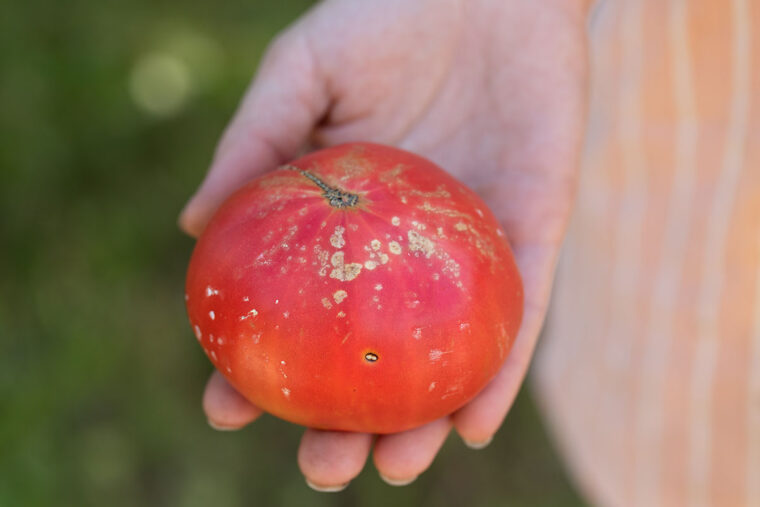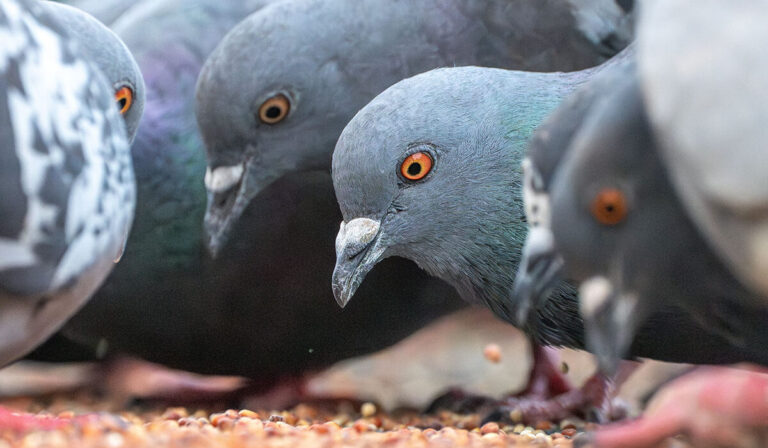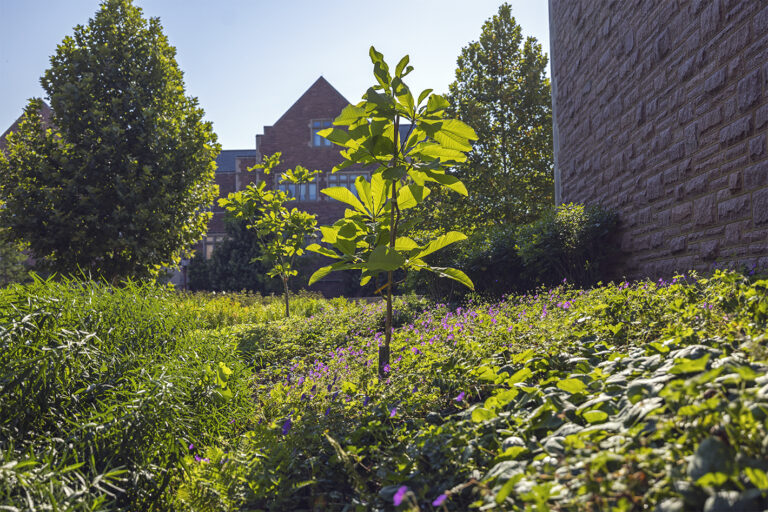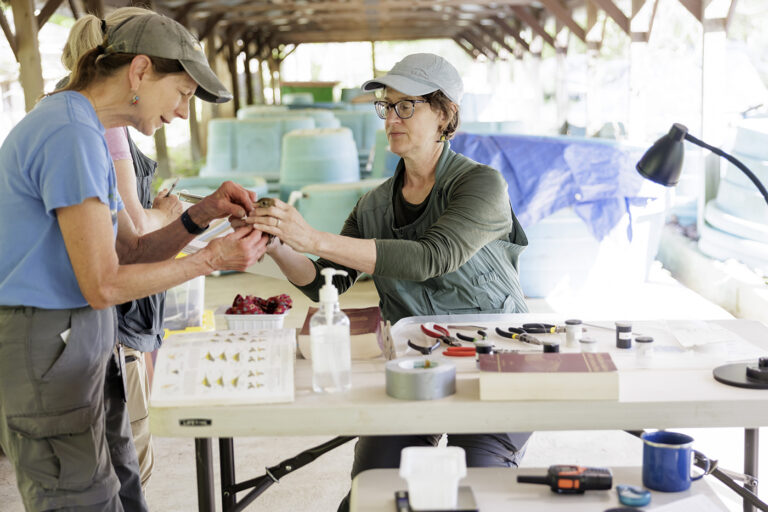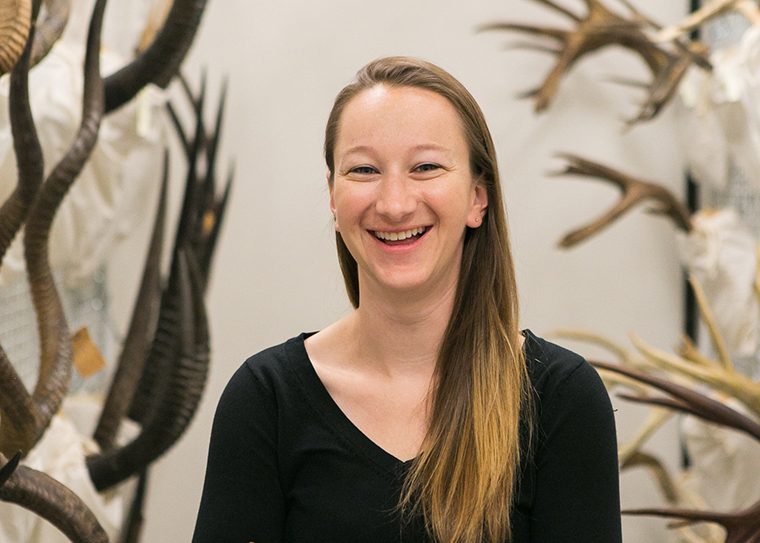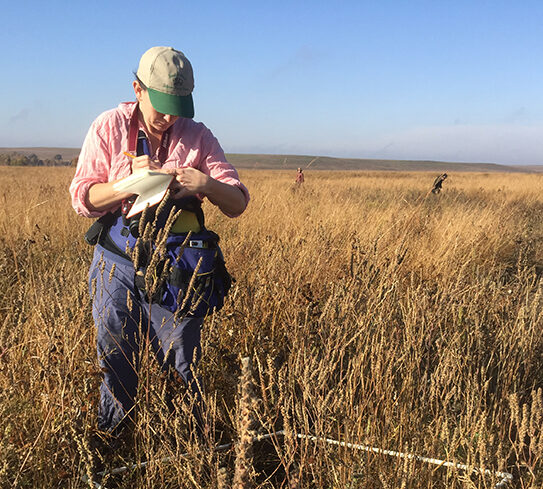How harmful bacteria hijack crops
Aphids, grasshoppers and other bugs aren’t the only pests that can quickly wipe out a crop.
Pigeons of St. Louis: A new look at a cosmopolitan bird
Pigeons seem right at home in St. Louis. You can see flocks perching on rooftops and power lines, waiting for a chance to grab a stray scrap of food or dirty a windshield.
WashU Arboretum wins national honor
On July 28, the National Association of College and University Business Officers recognized the WashU Arboretum as its 2025 Excellence in Sustainability Award recipient.
Biologist Zhong to study how plants deal with nutrient stress
Cultivated plants provide people with food, fuel and medicine. But crops also face many types of stresses that threaten their growth and yields.
Winged migration
St. Louis sits on the Mississippi Flyway — the largest migratory pathway used by birds in North America.
Religion, politics and war drive urban wildlife evolution
The downstream consequences of religion, politics and war can have far-reaching effects on the environment and on the evolutionary processes affecting urban organisms, according to a new analysis from Washington University in St. Louis.
WashU Experts: How to stay safe from ticks and mosquitoes in the Midwest
Before venturing out into the woods, a nearby park or even your backyard, keep an eye out for mosquitoes and ticks, which can be vectors, or carriers, for pathogens that can cause disease.
Environmental futures
SHARE
Across all Washington University in St. Louis campuses, scores of researchers share a drive to understand the natural forces that shape our climate, health, culture and physical world.
Reawakening ‘sleeping’ crops to combat today’s climate crisis
Natalie Mueller, an expert on agrobiodiversity and an assistant professor of archaeology in Arts & Sciences at Washington University in St. Louis, studies “three sisters” crops.
Global biodiversity begins at home with the Living Earth Collaborative
Combining the forces of WashU, the Missouri Botanical Garden, and the Saint Louis Zoo, the Living Earth Collaborative works to protect the plants and animals of the world — for their sake and ours.
